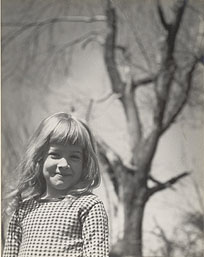Read a discussion about The Springhouse at
Kathleen Kirk's blog and more comments at
GOODREADS.
*******
Joyce Wilson speaks in her poems with quiet authority, taking us memorably into the world of childhood, with its
crises, disappointments, and joys. “The Springhouse” (an engaging point of entry), “The Errand,” and “Moving Out”
are among those poems I can’t forget—they recapture perfectly a small girl’s-eye view. Readers will be struck, too,
by Wilson’s skill in observing creatures closely and keeping them alive in words: a walking stick, a turtle,
mayflies, chickens, a dead bee. I particularly love “The Turtle,” “a shining object waiting to be found.” This
slim collection delivers generous pleasures, as the best poems always do.&nbs;; —X. J. Kennedy, author of In a Prominent Bar in Secaucus
Many of the poems in The Springhouse are beautiful, some with a Frostian weight and specificity, and I
much enjoyed the detailed knowledge about birds, amphibians, and insects, as well as the scrupulous attention to
form and the variety of meters. The poems about the three sisters, mother, and father are poignant and restrained;
they avoid self-pity, condemnation, and sentimentality, but their feelings run deep. Children in this book (in too
deep water, the refrigerator box) face problematic spaces both physical and emotional, while members of the animal
kingdom seem to achieve more freedom.
—Rachel Hadas, Board of Governors Professor of English, Rutgers University, author of The River of
Forgetfulness
Like the springhouse that gives her collection its title, Joyce Wilson’s work offers both bracing freshness and
mystery. In her poems about animals and insects, she honors the beauty of the natural world; and in her moving poems
about her sister, she acknowledges its pain. Wilson richly rewards her readers’ attention by her own patient fidelity
to her subjects.
—Timothy Steele, Professor of English at California State University, Los Angeles, and author of Toward the
Winter Solstice

Return to the Poetry Porch contents page.